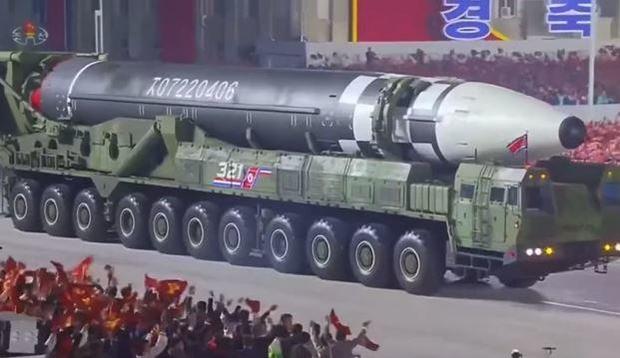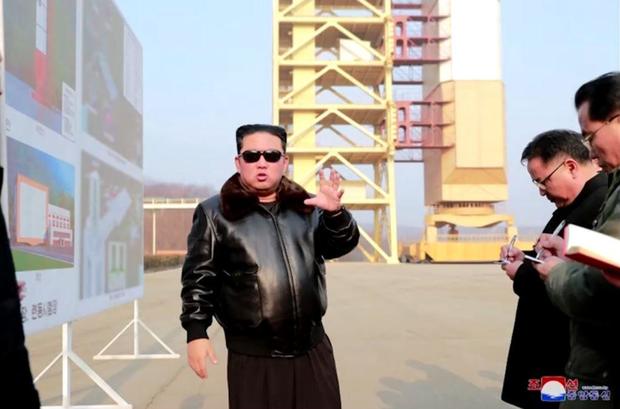U.S. boosts missile defense readiness in response to North Korea's "serious escalation" with recent missile tests
U.S. officials said Thursday that the Pentagon was amplifying its readiness in the Pacific in light of two North Korean missile tests over the past two weeks. North Korea said the launches were to help develop satellites, but as CBS News Asia correspondent Elizabeth Palmer reports, American intelligence agencies believe Kim Jong Un's military was really testing components of its gigantic "Hwasong-17" intercontinental ballistic missile (ICBM).
The new weapon was rolled out in a military parade in 2020, but as far as anyone knows, it has never actually been fired. If the missile works the way it has been designed to, it could potentially reach anywhere in the continental United States.
North Korea has ramped up its missile testing since the beginning of the year, and the U.S. has expressed concern that the international community isn't doing enough to stop them.
A senior Biden administration official said Thursday that the February 26 and March 4 missile tests represented a "serious escalation" by North Korea, but that unlike three ICBM tests carried out in 2017, neither of the recent launches demonstrated the range or capabilities of the missile system involved.
They were "likely intended to test elements of this new system before the DPRK [North Korea] conducts a launch in full range, which they will potentially attempt to disguise as a space launch," the official said, citing a U.S. intelligence assessment they said had been made in close coordination with key regional allies Japan and South Korea. The information had been shared with other American allies, including at the United Nations.
Just last month the Kim regime said it would consider resuming "all temporally-suspended activities" that it put on hold during a series of diplomatic overtures with the Trump administration. It was taken as a threat to resume testing of nuclear explosives — and long-range missiles.
Just last week, satellite imagery showed renewed activity at the North's Punggye-Ri nuclear facility, which it closed in 2018. On Friday, South Korean media cited officials in Seoul as saying tunnels blown up at Punggye-Ri by North Korea years ago, in a bid to show the facility was out of service, appeared to be under repair.
In response to the latest tests the U.S. military has ordered intensified intelligence, surveillance, and reconnaissance activities in the Yellow Sea, off North and South Korea's west coast, and enhanced readiness among U.S. ballistic missile defense forces in the region, the official said.
The U.S. Treasury was to announce new actions to help prevent the Kim regime from accessing foreign items and technology needed to advance its missile programs, and the Biden administration official said there would be "a range of further actions in the coming days."
President Biden has said before that he's willing to meet Kim personally "when there is a serious agreement on the table," but the White House says any top-level dialogue would need to be based on working-level negotiations, and North Korea "continues not to respond" to efforts to get those talks going.
Palmer says the Biden administration hasn't proposed anything concrete to get talks under way.
Negotiations between Kim and former President Donald Trump in 2018 and 2019 collapsed with no deal to curb North Korea's weapons program.
Kim appeared Friday at a space launch pad and announced that he was going to speed up the development of his country's military satellites.
Meanwhile, Palmer says Western analysts believe North Korea has manufactured enough nuclear material for at least one, maybe two more atomic weapons in the first 10 weeks of this year alone.
CBS News' Sara Cook and Tucker Reals contributed to this report.





